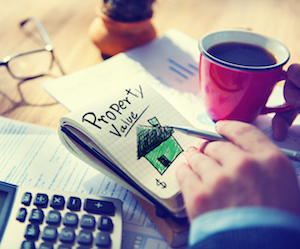
Developers, shoddy builders #1 concern for unit owners
Australia’s largest property sector – the $1 trillion plus strata sector – is calling for urgent action from the federal and state governments to protect the investments of thousands of Australians, who own, live or have invested in strata apartments throughout Australia.
The sector wants:
Ø An immediate government review of building materials used in high rise apartments to prevent potential deaths
Ø New regulations on short term letting services to mitigate the risks of an influx of inexperienced operators
The sector’s peak organisation, Strata Community Australia, has endorsed a report, undertaken by the AEC Group, which shows the sector now encompasses buildings and assets with a replacement value of $1.2 trillion.
But the sector’s growth is under threat according to SCA.
SCA is urging the federal government and state governments to work together to ban unsafe building materials and regulate short term letting services.
Thousands of apartment buildings in Australia’s strata sector could be at risk due to the reported spread of unsafe, imported building materials being used in Australian construction.
This warning is typified by the Victorian Building Authority’s decision to issue audit notices to builders and surveyors of 170 high rise towers in inner city Melbourne built over the past decade.
There are three main areas of concern:
- Imported aluminium cladding that poses a potential fire risk
- Electrical cabling that does not meet Australian standards
- Cheap overseas glass imports which could easily shatter
- The product at the centre of these warnings is a significantly cheaper, Chinese imported substitute for other fire-retardant and non-combustible products.
SCA wants a federal inquiry into the regulatory process governing imported building materials.
Strata Community Australia says the issue of imported building materials creating a serious risk situation for strata owners and stakeholders does not stop with aluminium cladding.
Exploding glass panels and faulty electric cabling also threaten sector safety.
“As recently as a few months ago, we observed a number of cases concerning glass panels imported from China spontaneously exploding, causing injury to a range of stakeholders; and last year the ACCC issued a recall for Infinity Cable Co’s imported cabling,” Strata Community Australia CEO, Kim Henshaw said today.
“A recall is one of the actions we foresee making a difference, but after reports last week stating that just 15 per cent of home and business owners have responded to the recall of approximately 4000 kilometres of the unsafe cable, we are urging the government to take firm action now.”
“For the sake of their own property and others in the building, we also want property owners to be very vigilant amid this emerging concern,” Mr Henshaw said.
Strata Community Australia insists that it is time for the Federal Government to create true change.
“It’s clear that numerous imports do not meet Australian standards, so we implore the government to take steps to safeguard Australian construction and strata from their use and immediately put penalties in place for those who use them.”
A national analysis on strata-titled property conducted by Queensland’s Griffith University’s Christopher Guilding has shown apartment owners’ primary concerns lay with poor building quality and problems with construction.
Unit owners survey by the author, professor Guilding, highlighted building defects as their No 1 challenge and was identified as the most important issue for strata lawyers.
“It is striking how strongly building defects comes through as the biggest concern,” said professor Guilding, who will be releasing the results of the Inquiry Into Key Challenges In Australian Strata Title at the launch in September of the biennial national conference Strata and Community Title in Australia for the 21st Century. “The qualitative survey was conducted across different states so I would have to say this is such a pervasive issue, it should be the subject of a federal government inquiry. Such a strong reaction from all the key players in the industry means this is of profound importance.”
One of the prime reasons for the defects, unit owners all identify developers who don’t intend to be around for the long term plus unqualified builders.
The NSW Home Building Amendment Act, enacted in January exacerbated the problem as it reduced time limits for statutory claims to two years except for “major defects”.
“I get a sense these problems are worse in Australia than overseas, so we need an inquiry to look into what’s happening elsewhere in the world that means they’re not getting this kind of volume of building defects,” said professor Guilding, chairman of the conference.
Strata lawyers also felt that remediation of defects is the single biggest problem in apartment living today, and likely to become bigger still as buildings age. They also named as a major setback last year’s High Court ruling in a two-year case over building defects in a multimillion-dollar apartment complex in Sydney’s Chatswood that the owners corporation of serviced apartments could not sue the builder, Brookfield Multiplex, to recover the cost of fixing alleged defects in common areas.
Meanwhile fire prevention experts warn high-rise apartment owners are sitting on time bombs if safety loopholes around cheap construction materials are not adjusted. The concern was triggered by a fire in a 21-storey apartment building in Melbourne’s Docklands last November. A cigarette left on a balcony table in the Lacrosse building started a fire, which engulfed 13 storeys in less than 15 minutes. The problem was cheap cladding imported from China, which covered the entire building.
The cheap cladding used on the Lacrosse building, called Alucobest, has aluminium on the outside and polyethylene, or plastic fibre, inside and has been found to be highly flammable.

AccomNews is not affiliated with any government agency, body or political party. We are an independently owned, family-operated magazine.







